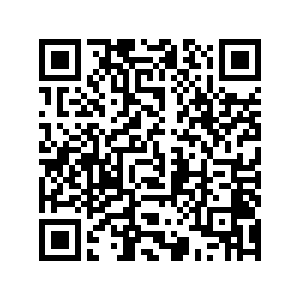by Xinhua writer Xiong Maoling
WASHINGTON, May 10 (Xinhua) -- Observers believe that expectations of the U.S. government's higher tariffs prompted businesses to significantly increase imports and stockpile goods in advance, which weighed on economic growth in the first quarter and caused the country's first-quarter gross domestic product (GDP) to contract.
Looking ahead, the continued implementation of U.S. tariff policies is expected to exacerbate uncertainty, potentially leading to higher inflation and unemployment. The impact of tariffs on the U.S. economy may become more apparent in the coming months.
The data recently released by the Department of Commerce showed that U.S. GDP contracted at an annualized rate of 0.3 percent in the first quarter, marking the worst quarterly economic performance since 2022.
The department stated that the contraction was primarily driven by a significant increase in imports and a reduction in government spending.
Specifically, net exports dragged GDP down by 4.83 percentage points during the first quarter. This indicates that businesses were concerned about potential increases in future import tariffs, leading to large-scale inventory stockpiling.
The contraction in GDP reflects "the sudden change in trade policy that culminated in the biggest drag from net exports in data going back more than a half-century," Wells Fargo economists wrote in an analysis.
At a press conference Wednesday, Federal Reserve Chair Jerome Powell noted that the GDP decline in the first quarter primarily reflects fluctuations in net exports "that were likely driven by businesses bringing in imports ahead of potential tariffs."
The Fed concluded its two-day monetary policy meeting on Wednesday and announced it would keep the federal funds rate target range unchanged at 4.25 to 4.50 percent. This marks the third consecutive meeting, following those in January and March, where the Fed has opted to hold steady.
"The Committee is attentive to the risks to both sides of its dual mandate and judges that the risks of higher unemployment and higher inflation have risen," the Federal Open Market Committee, the central bank's policy-setting body, said in a statement.
When asked about the actual impact of tariffs, Powell told reporters that Fed officials have observed changes in consumer sentiment, with people expressing concerns about the effects of tariffs and the potential for rising prices. However, these impacts have yet to be fully reflected in economic data, he said.
The Fed chief noted that the Trump administration's new policies are still evolving, and their economic effects remain to be seen. "If the large increases in tariffs that have been announced are sustained, they are likely to generate a rise in inflation, a slowdown in economic growth, and an increase in unemployment," Powell said.
Many economists believe that the ongoing uncertainty surrounding trade policy could pose challenges to economic growth in the coming quarters. As the adverse effects of tariffs become more apparent, the U.S. economy is expected to slow down, potentially even entering a recession.
Dean Baker, a senior economist at the Center for Economic and Policy Research, told Xinhua that tariffs will definitely slow growth, as "businesses will be reluctant to invest in such an uncertain environment and many households will put off big ticket purchases."
Barry Bosworth, economist and senior fellow at the Brookings Institution, warned that "There is a high probability of a contraction in domestic demand in the second quarter ... A fall in GDP seems likely."
Generally, U.S. research institutions define two consecutive quarters of negative GDP growth as a recession.
"Count me in the recession camp. I don't see (President Donald) Trump rowing back his tariff agenda ... far enough to restore certainty to business and confidence to consumers," Gary Clyde Hufbauer, a non-resident senior fellow at the Peterson Institute for International Economics, told Xinhua.
Observers have pointed out that Trump had promised to reduce inflation during his campaign, but high tariffs have made it more difficult to bring inflation back to target levels and could even lead to further inflation increases, putting additional pressure on the U.S. government.
Mike Pence, who served as vice president during Trump's first term, has repeatedly criticized the current administration's tariff policies. In a recent interview with CNN, he dismissed Trump's recent remarks suggesting that American children should have fewer toys, stating that making toys affordable is a part of the "American Dream."
Pence argued that the impending price shocks and potential shortages would compel the American public to demand a different approach from the White House.
Christopher Galdieri, a political science professor at Saint Anselm College, told Xinhua that high inflation is a drag on a president's approval ratings.
"Unpopular presidents have a harder time convincing members of Congress, courts, and the public to go along with their plans," Galdieri said. Enditem
(Matthew Rusling also contributed to this story.)
